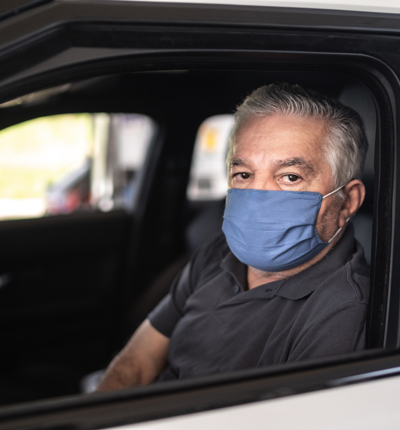The government has acknowledged the need for a gender-based approach to healthcare, having recently implemented a Women’s Health Strategy for England.
Despite an overall improvement in life expectancy, there is a significant difference in male and female life expectancy, with women in England expected to live up to age 83 and men only to age 79.
There is clearly an inescapable need for a similar focus in the UK on male health matters, particularly given that we have seen a concerning disparity in outcomes for men and women over the COVID-19 pandemic.
Why does Covid-19 affect men more severely?
While there does not appear to be a case to suggest that men are being more exposed to the virus, it appears that once the virus is contracted, males are more likely to suffer severe complications or death than women.
A recent study conducted by
Nature Communications reported that male COVID-19 patients are three times more likely to require treatment in an intensive care unit (ICU). A similar study in the UK, prepared by Public Health England analysing the risk and outcomes of COVID-19, revealed that male COVID-19 patients are anywhere between 50% – 200% more likely to die from COVID-19 than female counterparts.
There have been various biomedical and behavioural theories put forward to explain why this may be the case.
The
Men’s Health Forum suggests that factors such as smoking and/or alcohol consumption and poor diet are relevant, with dismissive attitudes to hand-washing being another plausible explanation. While the link between handwashing and the severity of disease has not been established, a study by the Centers for Disease and Control (CDC) in the United States found that only 31% of men washed their hands compared to 65% of women. This indicates that males are potentially more likely to face multiple exposures to the virus, which obviously puts them more at risk of contracting the disease.
Despite the fact that more men than women are dying or suffering severe illness from COVID-19, according to an
analysis of NHS England data, more women than men are getting vaccinated. It is unclear why this is, and of course attitudes to the uptake of the vaccine across the whole population is controversial. However, a recent YouGov
survey reported males are more likely to deny the severity of the virus, with 24% of men comparing COVID-19 to the flu compared to 16% of women, and a National Pharmacy Association (NPA)
survey showed that men are much more reluctant to access primary care services than women anyway. Therefore, it is possible that this reluctance to be vaccinated ties in with the reluctance of males generally to act when it comes to their own health needs, and that this at least in part is due to a wider failure in the healthcare service to engage with men with it comes to primary care services.
What can you do to protect yourself?
There is a lot we still don’t know about COVID-19, particularly what the long-term implications are. As the virus’ behaviour may be changing, it is important that we all do what we can to protect ourselves and our loved ones.
- Letting fresh air in if you meet indoors.
- Wearing a mask and social distancing as much as possible.
- Getting tested and self-isolating if required.
- If you haven’t already, getting vaccinated.
This blog does not constitute medical or government advice – if you have any concerns, you should contact a medical professional or look to the government website for up to date COVID-19 guidance.





